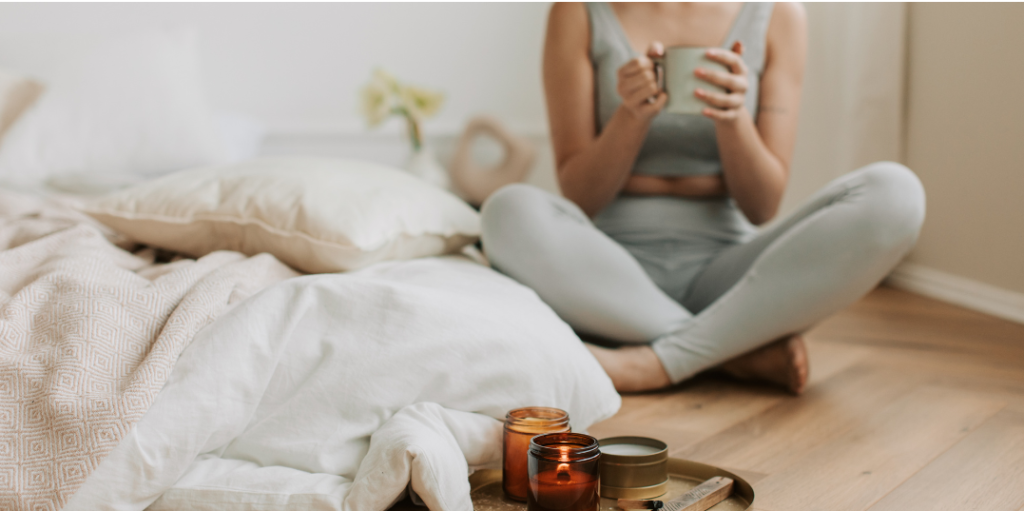April is Stress Awareness Month
In today’s world, stress seems to be something that everyone deals with regularly – what are the common symptoms of your stress?
Millions of years ago, our bodies were designed to react quickly to danger. Like wild animals we were on constant alert so we could run or fight if threatened. When your brain thinks your life is in danger it stimulates the release of adrenaline and cortisol.
This fight or flight response is incredibly clever and thoroughly efficient. It provides instant energy for 5-10 minutes allowing you to react swiftly to dangerous situations.
When your brain thinks your life is under threat, it immediately stimulates the adrenal glands to release the hormones adrenaline and cortisol.
At this point a number of things happen in your body:
- Your heart speeds up and your blood pressure rises
- The clotting ability of your blood increases so you’ll recover more quickly if you are injured and start to bleed
- Your digestion shuts down (there’s no need for it – you’re certainly not going to be eating a sandwich while your life is in danger) and the energy necessary for digestion is diverted elsewhere
- Your liver immediately releases emergency stores of glucose into the bloodstream to give you instant energy to fight or run
- Your immune system produces more white blood cells so you’ll be better equipped to fight foreign viruses or bacteria.
These days, many people live under chronic stress. But your body can’t distinguish between late trains, missed appointments, spiralling debt, infuriating work colleagues, family disputes and the truly life-threatening stress it gears up to challenge. So it reacts exactly the same as it’s always done.
The problem with many modern lifestyles is that stress (your ‘perceived threat’) is almost continuous and comes without the natural release that either fighting or fleeing might provide.
There has also definitely been a rise in people seeking solutions for stress and anxiety over the last few years. Because your sense of what is normal has been changing day to day, that can make you feel very anxious because what has been happening in the world is out of your control.
Added to this uncertainty is the financial pressure of being worried about the cost of living crisis.
And this can level of anxiety can affect what choices you make around your diet and also alcohol intake which can leave you stuck in a vicious cycle.
How can stress affect us physically?
The knock-on effects of continually being too stressed are enormous, physically and mentally. They can include
A tendency to gain fat around your middle
Increased appetite
Increased cravings for chocolate, sweets, breads, cakes, caffeine and alcohol (particularly any combination of carbohydrates and fats, such as chocolate and cakes because they are particularly high in calories)
Slump in the middle of the afternoon, around 3 or 4pm when you know you are going to need a cup of tea or coffee and/or something sweet to get you through the afternoon
Your immune system is low (you get frequent colds and infections)
Headaches
Nail biting or skin picking around the nails
Mood swings
Crying spells
Aggressive outbursts
Teeth grinding
High cholesterol
Blood sugar swings
Digestive problems (such as bloating and flatulence)
Chest pains – (you must see your doctor if you are getting chest pains but the effects of the stress hormones can mimic heart problems)
Muscle aches and pains
Shoulder and neck pain (stress hormones will keep certain muscles tense ready for fight or flight)
Hair loss
Irregular periods or no periods (your reproductive system is the only system your body can shut down without killing you, so when you are stressed your body may divert energy and resources away from your reproductive organs)
Difficulty in concentrating or forgetfulness
Depression
Increased premenstrual symptoms (PMS)
Slower metabolism (which makes it harder to lose weight in general)
Low sex drive
Tiredness but an inability to sleep well
Tendency to get a second wind in the evening
Waking up in the middle of the night, finding it hard to get back to sleep and then desperately want to continue sleeping in the morning when you should be getting up
The link between stress and diet – how can eating cause more stress?
Balancing blood sugar is essential in lowering stress because the crashes in sugar levels which happen through the day (due to going long periods without food and not eating the right foods) stimulates more adrenaline and cortisol to be released. This is because these stress hormones, apart from helping you to run away from a tiger can also mobilise your glucose (which has been stored as glycogen in the liver) back into the blood stream. This is why you can feel more jittery, irritable etc when blood sugar plummets!
What can you do to help balance your blood sugar?
- Eat every 3 hours
- Include some protein every time you eat, i.e. fish, eggs, quinoa, tofu, beans, nuts and seeds and natural bio yogurt. This slows down the release of sugar and thus keeps levels more stable
- Limit caffeine to one cup or avoid it if you can and never drink caffeine on an empty stomach because it is a stimulant and gets straight into the bloodstream and triggers cortisol release
- Eat a serving of dark green leafy vegetables/salad daily
- Snack on dried fruit (organic) and unsalted nuts and seeds
- Replace white rice and bread with brown and wholemeal for fibre content and B vitamins
This will stop those roller-coaster highs and cravings for sweet foods. Because your blood sugar isn’t allowed to drop, your body will no longer have to ask you for a quick fix. As the blood sugar steadies, so will the mood swings. As your adrenaline levels reduce you will automatically start to happier and calmer inside.
There is a test you can take to see just how stressed you are – what does that test involve?
The best way to see how stressed you are is check your level of cortisol using saliva. Cortisol fluctuates during the day, ideally being highest in the morning, as you start the day and lowest at night when you are ready to wind down and go to bed.
Is it possible to be addicted to stress?
Yes some people can become addicted to stress and enjoy living on adrenaline. You want to feel that ‘buzz’ all the time and your foot is always pressing down on the accelerator pedal. But there will always be consequences in the long term because your body can’t keep going like that.
And your body will be suffering and is vulnerable. A major trauma, accident or bereavement could easily precipitate a complete collapse. Something relatively small can be the last straw that tips you over the edge.
Things like taking a holiday or switching off from technology can be quick fixes to minimising stress, but what are the long term practises that can help reduce stress for good?
Make sure you are eating well and not missing meals. Limit stimulants like caffeine and energy drinks as they will make you feel more stressed. Have exercise even just walking as part of your daily routine. Exercise helps releases neurotransmitters called endorphins which make us feel happier and calmer.
Certain nutrients can be extremely helpful in helping to reduce stress and its impact on your health. These include the B vitamins especially B5 for stress relief and energy, magnesium – nature’s tranquiliser for relaxation and sleep, chromium for blood sugar balance, Siberian ginseng which acts as a tonic to the adrenal glands and L-theanine for reducing stress and anxiety. A good supplement I use in the clinic which contains all these nutrients plus more is NHP’s Tranquil Support.
Delegate – try to let other people do things for you when you can. It is a very female characteristic to try to do everything yourself because nobody can do it quite as well.
Put yourself first – it is important to do this at least some of the time otherwise by the time you have done everything for everybody else, there will be no time left. Try to take time for yourself every day even 10 minutes – read a magazine, do a crossword puzzle, and build it until there is a proportion of every day when you do what YOU want to do.
Learn some relaxation techniques – This may be just listening to some soothing music, indulging in a hot bath with aromatherapy oils, taking a peaceful walk, yoga, meditation, etc. You could also try learning a visualisation technique or learning to breathe slowly and deeply.
Sleep
Stress and sleep are inversely related; in other words, the less sleep you get, the more difficulty you will find in adapting to challenging situations. The more sleep you have, the less stressful everyday pressures seem.
As a society we are sleeping less; the time we sleep each night has reduced from 9 hours to 7.5 hours since the 1900s. One in three people are affected by insomnia which can be difficulty in getting to sleep and/or waking during the night and not being able to get back to sleep.
Sleep is important for your health because it gives your body time to recharge its batteries and repair cells and tissue. When you don’t get enough or good quality sleep, you can feel anxious and irritable and, of course, feeling tired.
Sleep nowadays is almost seen as a luxury because it means you can pack more into the day if you sleep less. This might seem logical because you will have more hours awake but by depriving yourself of sleep, you may find that you are not as productive the next day and that lack of sleep will have long term consequences on our health. Not getting enough sleep increases your risk of type 2 diabetes, cancer, being overweight and Alzheimer’s.
There are some very good traditional herbs that have been used for centuries to help with sleep problems. These include valerian, chamomile, hops, lemon balm and passionflower. Valerian has been shown to reduce the time it takes to fall asleep by 15-20 minutes and improve sleep quality. Chamomile has calming effects which decrease anxiety and help to initiate sleep.
Lemon balm has been used with stressed volunteers with anxiety disorders and sleep disturbances. It not only helped them sleep better but also reduced anxiety. Passionflower is helpful for sleep problems and when combined with valerian and hops was as effective as a mediation for insomnia at improving sleep quality.
The amino acid l-theanine is really helpful for those who are ‘tired but wired’ where they are exhausted but as soon as their head hits the pillow their brain is very active and doesn’t allow them to fall asleep. There has also been good research on tart cherries which has shown that these have helped people with insomnia increase sleep time by up to 84 minutes. There is a good combination I use in my clinics called NHP’s Advanced Sleep Support which contains all these nutrients.
Taking deep breaths when someone is anxious can help them to feel calmer and more relaxed. When a person shallow breathes, they are hyperventilating and that can make them feel more anxious. Deep breathing helps to switch off the stress response.
Factoring in time for gentle exercise to walk outside in the fresh air is important to help reduce anxiety and people can even use walking as a form of mindfulness just to be in the moment and quietening the mind.

